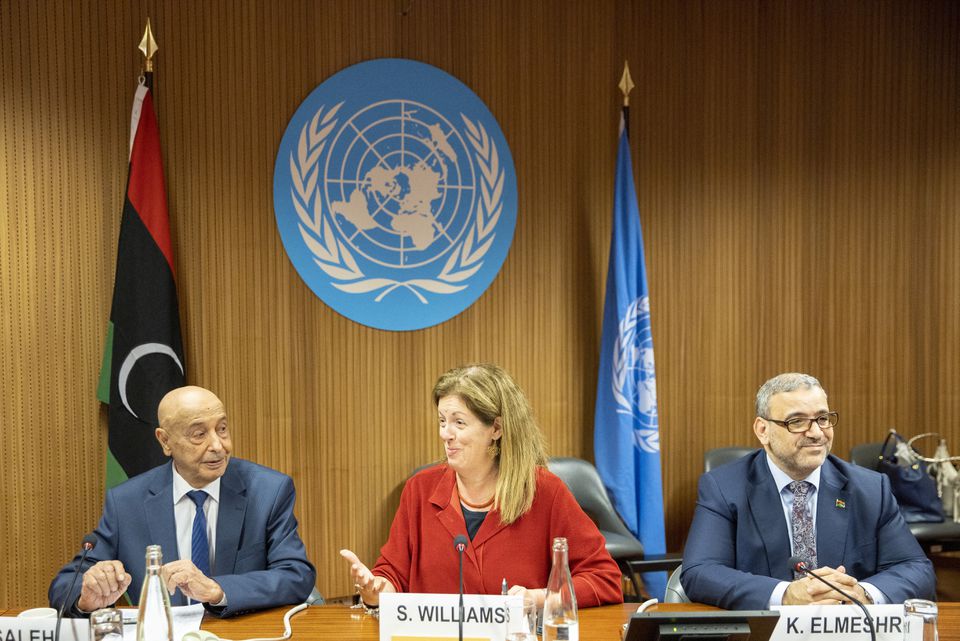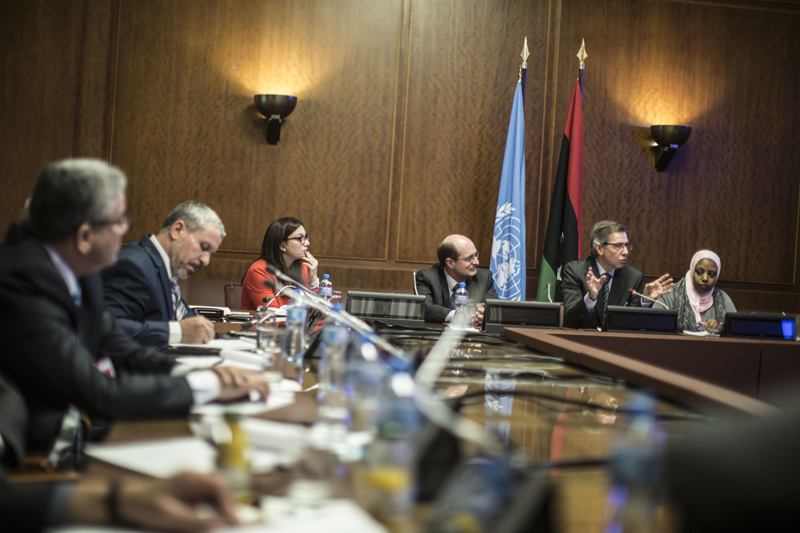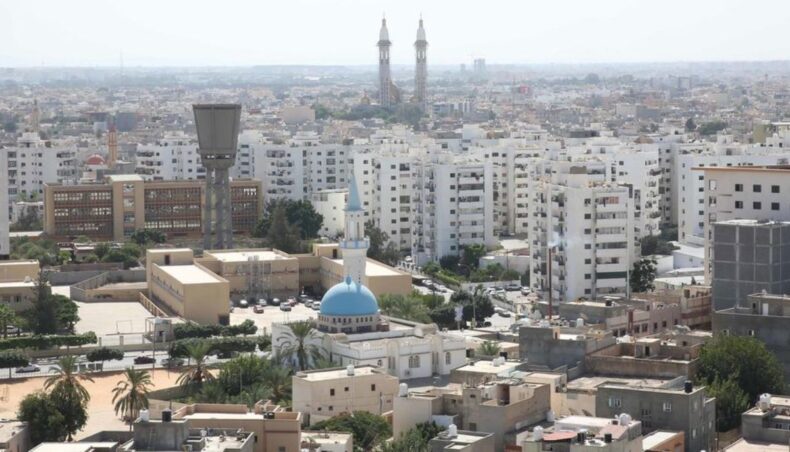Rival Libya- After failing to come to a consensus previously, the conversation for the future of Libya will now center on a proposed constitutional framework for elections.
The latest UN effort to reduce tensions between the country’s adversaries started two days of discussions on constitutional procedures for elections with two senior Libyan officials.
Aguila Saleh, the powerful speaker of the nation’s parliament, who is situated in the country’s east, and Khaled al-Meshri, the chairman of the High Council of State of the internationally recognized government, who is based in the west, in the capital city of Tripoli, met at the UN building in Geneva.

The competing factions in Libya failed to reach an agreement in their previous round of negotiations in Cairo, the capital of Egypt, earlier in June. As a result, the UN said the talks will center on a draft constitutional framework for elections.
According to Libyan media, the qualifications for a presidential candidate were a topic of contention in the previous round of negotiations.
Apparently, in retaliation for the contentious commander Khalifa Haftar, whose forces are loyal to the administration in the east, the Tripoli-based council insisted on prohibiting military people from standing for the top position in the nation.
Last December, Haftar declared his intention to run for president. However, the election was postponed due to a variety of problems, including unpopular candidates and disagreements over the electoral process.
On the ground, tensions are rising, and recent events in Tripoli have seen fights between competing factions.
In the oil-rich country, living circumstances have also gotten worse, primarily due to gasoline shortages. The largest oil field in the nation was among the oil facilities shut down by tribal elders.

‘Power for the Worthy’
The current Prime Minister, Abdul Hamid Dbeibah, who has refused to resign, was primarily targeted by the blockade in order to lose access to crucial state funds.
Now, Dbeibah and Fathi Bashagha, a rival prime minister chosen by the east-based parliament to head a transitional administration, are vying for control. Fears that the nation may return to conflict after making small moves toward unification last year have been stoked by the rivalry.
Since Muammar Gaddafi’s longstanding dictatorship was overthrown and killed in 2011, Libya has been torn apart by conflict. Years later, the nation was divided between rival eastern and western regimes, each backed by a different militia and a different foreign power.
Libyans in Tripoli are not very optimistic that the talks would result in any progress, according to Malik Traina of Al Jazeera. Read More

Since the UN began facilitating these negotiations, he claimed, “agreements have been reached, but when one side of the issue doesn’t like them, things fall through.”
Even if the conversations are successful, Traina continued, there are still dangers to be aware of.
Which government will supervise the elections if a deal is reached and a framework for holding elections was agreed upon? said Traina.
The negotiations, according to Al Jazeera’s Rory Challands, who was reporting from Geneva, were intended to keep Libya out of additional war.
The goal, according to Challands, is to return Libya to a better and more stable state than it was on December 21, when those presidential and parliamentary elections were abruptly halted.
CGTN Africa












